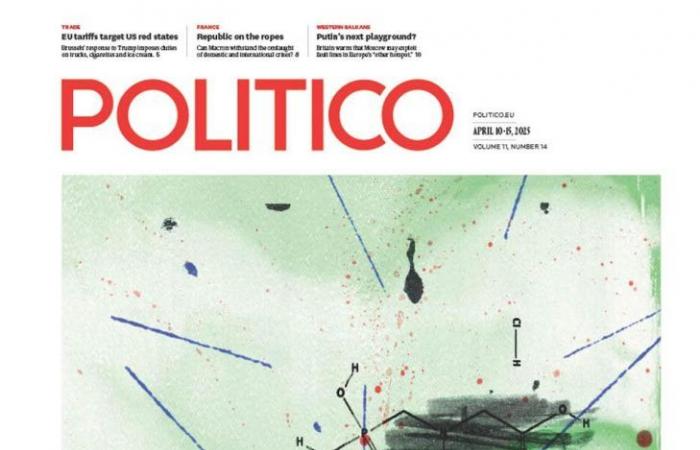When James Parkinson described the illness that bears his name in 1817, it was a rare pathology of elderly man. What about two centuries later? “The prevalence of the disease has doubled in the world in the past twenty years, and it will still double for the next twenty”, explain Politico.
The paper version of the online media devotes its front page to the Dutch neurologist Low Bloem, who considers that “Parkinson’s disease is the ransom of pesticides”. In other words, for him, this disease which attacks neurons producing dopamine, depriving them of their ability to move, is above all linked to the environment and exposure to pollutants.
Paraquat
The magazine noted that patients from the medical center he heads in Nimègue, in the Netherlands, most often live in rural areas. Of course, Europe ended up prohibiting paraquat in 2007, an ultratoxic herbicide marketed by Syngenta. But Low Bloem denounces the pursuit of its massive use in many countries, such as the United States or New Zealand, as well as in South America and Africa. Syngenta denies the neurotoxic character of his product and explains that “Paraquat does not present a danger if it is used as indicated”.
In the bloem bloem crosshairs, there is also glyphosate, reuthorized in Europe for ten years in 2023. But the links between the weedkiller, manufactured mainly by Bayer, and neurodegenerative disease are not as obvious.
-“Unlike the paraquat, which immediately causes oxidative stress and has been associated both in experimental work and in epidemiological studies, the risks linked to the use of glyphosate are more indirect”, explain Politico.
The fact remains that the known effects of glyphosate on “Inflammation, the disturbance of the microbiome [appelée auparavant flore intestinale] Or the dysfunction of mitochondria all contribute to the death of dopaminergic neurons ”.
For the Dutch neurologist, the failure to prohibit herbicides and pesticides testifies to an inability to correctly assess their risks for human health, but also the difficulty in bringing the data back, when they exist, to regulators.
[…] Read more on international mail








